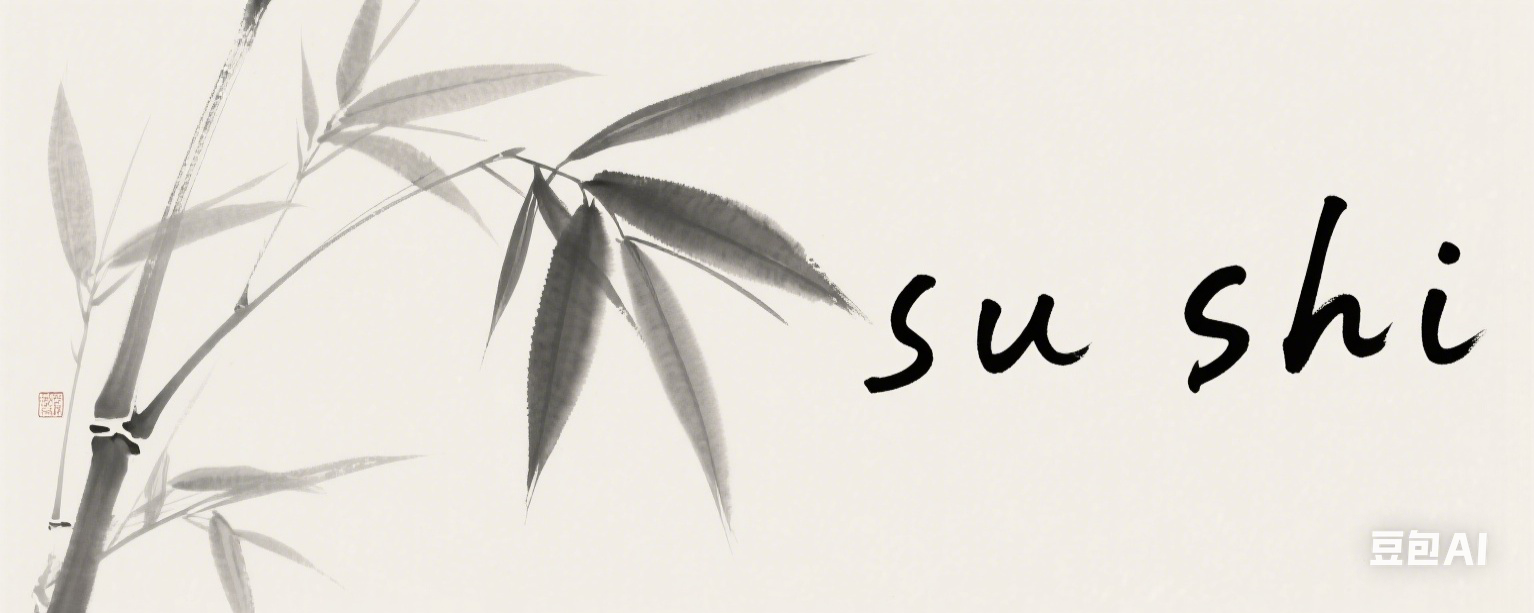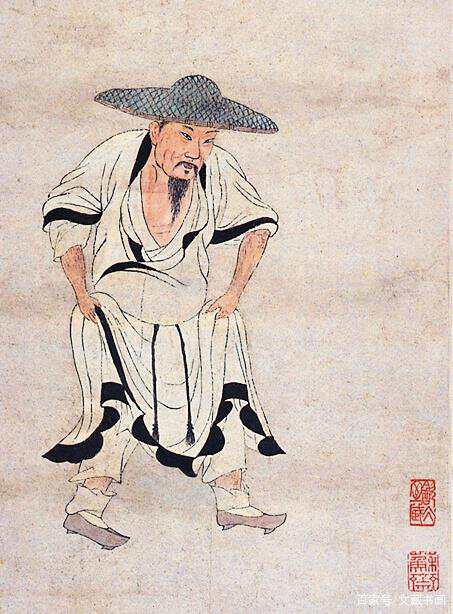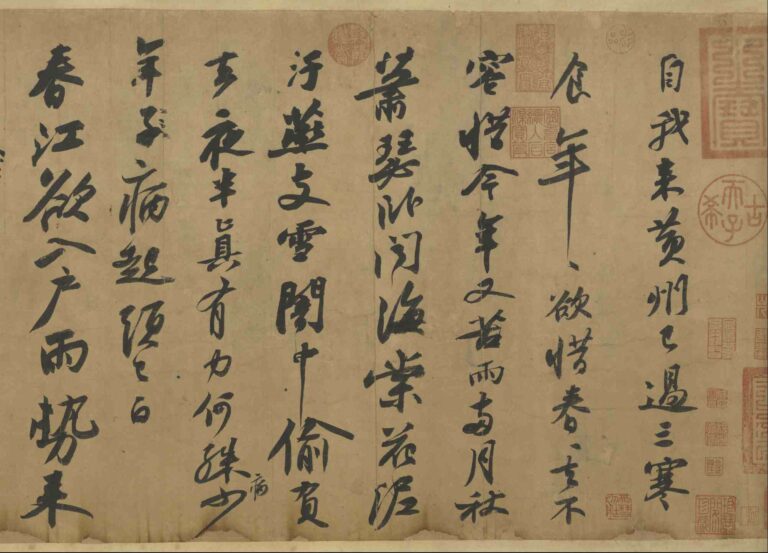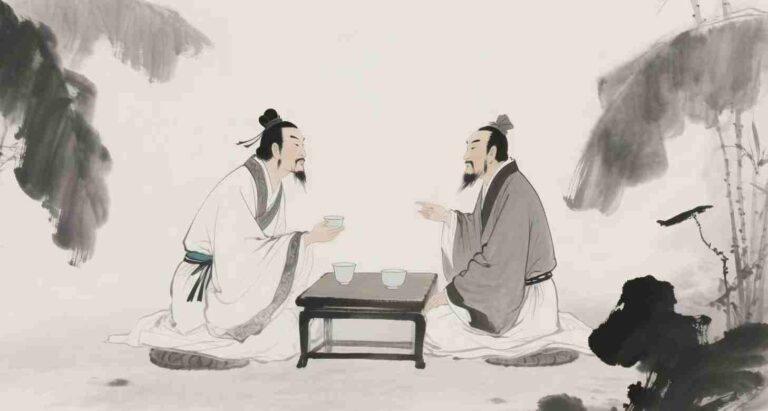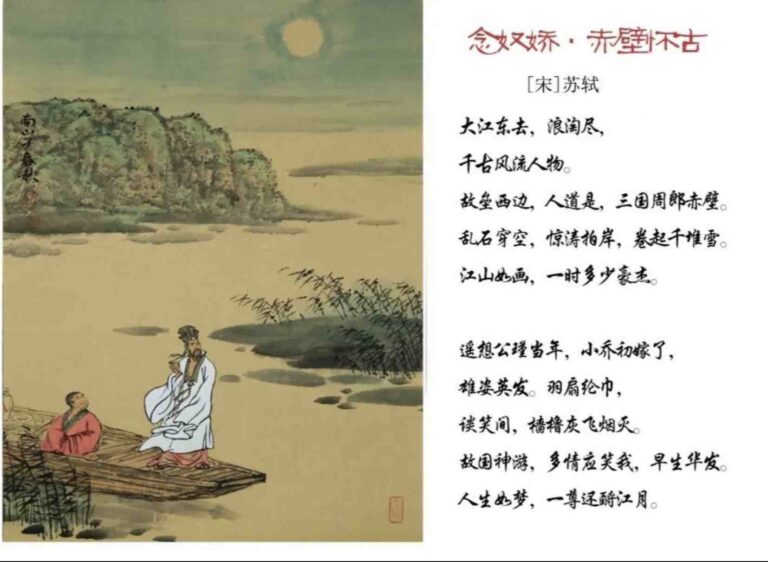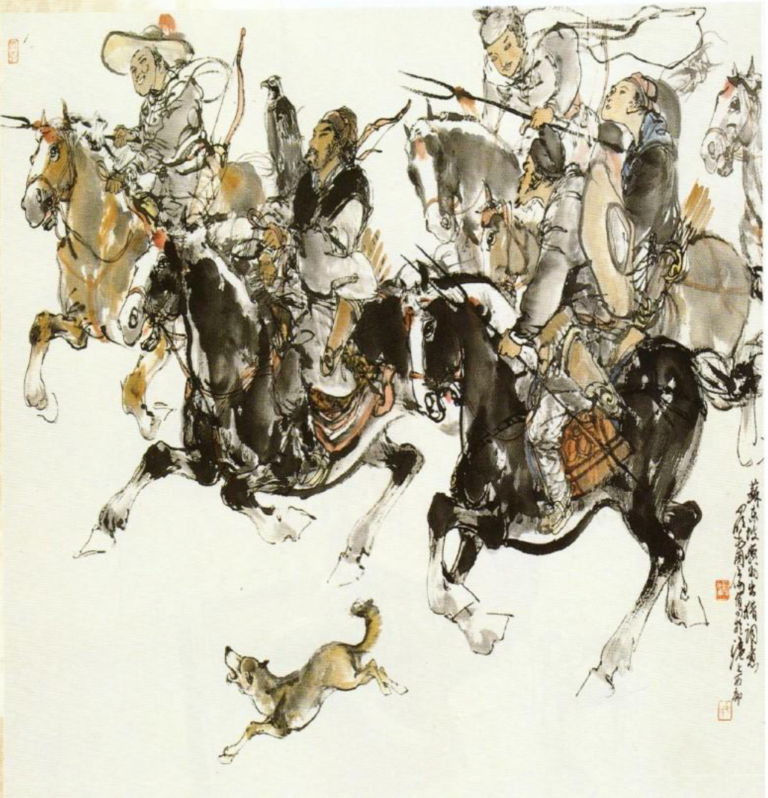Su Shi and Wang Anshi

Enemies and Friends: The Thousand-Year Relationship Between Su Shi and Wang Anshi
In the turbulent political arena of the Northern Song Dynasty, Su Shi and Wang Anshi, one is a bold and unrestrained literary giant, and the other is a political leader who is determined to reform, the two have different political views but sympathize with each other, from tit-for-tat to a more amicable situation . their stories are not only intertwined with their personal destinies, but also reflect the spiritual character of the scholarly class and the style of the times.
I. diamond cut diamond: A Fierce Collision between the Old and New Parties
During the Xining period, Wang Anshi, supported by Emperor Shenzong of the Song Dynasty, tried to save the poor and weak Northern Song Dynasty through a series of measures, such as the green seedling law and the market exchange law. Su Shi, on the other hand, believed that the reforms were too radical and could harm people’s livelihood and social stability. In his “Letter to Emperor Shenzong”, he said bluntly, “The people are not happy with the world’s grudges”, and even satirized the shortcomings of the New Deal in his poems and writings, such as “Five Songs from a Mountain Village”, in which he satirized the Miao Law for disturbing people’s livelihoods.
Wang Anshi, on the other hand, regarded Su Shi as a “stalwart of the old party” who hindered the reform, and refuted each and every one of his poems and articles. In the whirlpool of power, the two became political rivals, exchanging words in the courtroom and writing in the literary world. Su Shi’s life crisis due to the “Wutai Poetry Case”, many new party officials fell on the well, and behind this crisis, but also vaguely see the shadow of the old and new party dispute.
2, patch up differences: political storm clouds outside the literati cherish each other
Yuanfeng seven years, was relegated to Huangzhou Su Shi was ordered to transfer to Ruzhou, passing through Jiangning (now Nanjing), took the initiative to visit Wang Anshi retired here. At this time, Wang Anshi has stepped down as prime minister, Su Shi also experienced the eunuchs, once the sword rivals, at this moment, even to see each other in white. Wang Anshi rode a donkey to the riverside to meet, Su Shi lamented: “Advised me to try to seek a piece of land for a house (three acres), and I already feel that it’s been ten years too late to follow such advice from you.”
The two traveled to Zhongshan together, talked about poetry and Buddhism, and spent a few days together, their political differences quietly dissolved. Wang Anshi appreciated Su Shi’s literary talent, calling his poem “I don’t know how many more centuries there will be such a character”; Su Shi also understood Wang Anshi’s original intention to change the law, and wrote “Riding a donkey into the desert, I would like to see Mr. before he was sick. I was advised to try to seek three mu house, from the public already feel ten years late”. This meeting became one of the most touching reconciliations in the history of Chinese culture.
3.Gentlemen’s Friendship: Spiritual Resonance Beyond Positions
The relationship between Su Shi and Wang Anshi broke the stereotype of “enemy or friend” in the traditional political struggle. Although they were opposed to each other because of their different political beliefs, they always maintained respect for each other’s personality and talent. After the death of Wang Anshi, Su Shi was ordered to write “Decree on Conferring the title of Grand Preceptor upon Wang Anshi”, highly praised him as having a reputation that stands out in his era and learning that spans thousands of years. His magnificent writings are sufficient to adorn all things, and his outstanding conduct is enough to inspire people far and wide. All these show his open-minded and magnanimous mindset.
This kind of gentlemanly friendship beyond the party dispute, from the Song Dynasty scholar “to the world for themselves” sense of mission. They all wanted to save the country in their own way, but chose different paths. When the political identity is removed, both of them are literati who love literature and care about people’s lives, and this spiritual resonance makes them ultimately understand and tolerate each other.
the story of Su Shi and Wang Anshi is like a long ink-wash painting slowly unfurling. It contains both the rich colors of political struggles and the subtle and elegant blank spaces representing the mutual appreciation between literati. They spent their whole lives interpreting what it means to be “gentlemen who seek harmony without uniformity.” They could argue passionately for their ideals, and also let go of their prejudices after the passage of time. They could have a tit-for-tat attitude towards political views, yet they always maintained respect and kindness for their opponents. This friendship that has spanned a thousand years still shines with the luster of human nature and has left a precious spiritual legacy for future generations.
